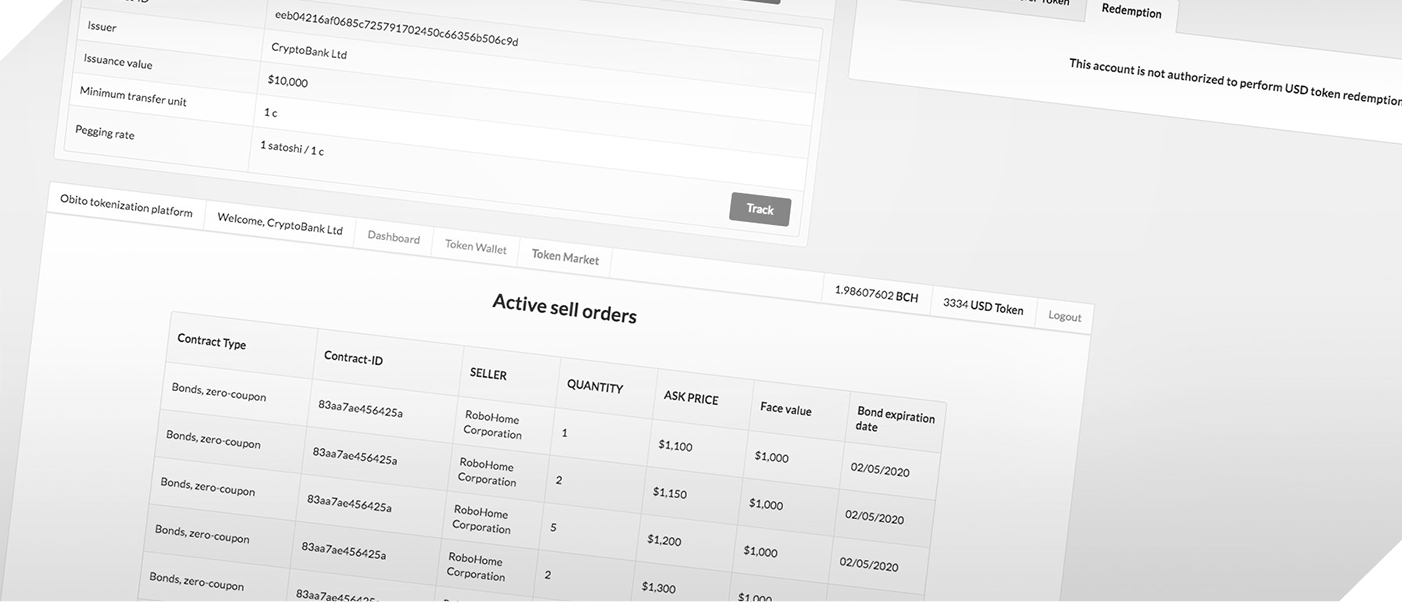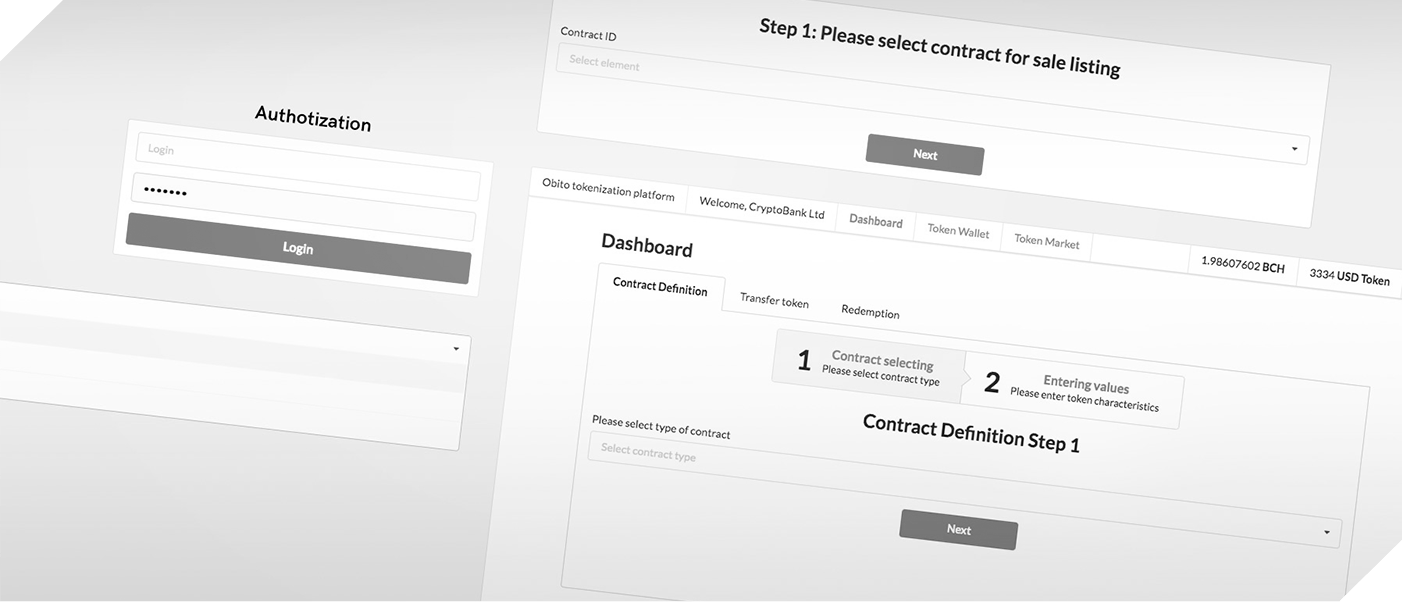obito
A reliable and trustworthy platform for tokenization and backing of digital assets with actual currency and unified ownership data storage format
[ BLOCKCHAIN ] [ WEB ] [ CRYPTOCURRENCY ] [ FINTECH ]
2018

Andrew Fai is the founder and CEO of Y0G1 company. He currently provides consulting services for Taiwan Legislative Yuan and other financial institutions on matters relating to Blockchain, Cryptocurrency, FinTech and Strategy.
Stef Savanah is co-inventor on 57 blockchain-related patent applications. Stef’s background spans both academic and corporate spheres. In the corporate world, he has 30+ years of experience covering all aspects of Information Technology.
The main challenge was to create a truly zero-trust environment for the general public, companies and institutions to perform financial operations and maintain asset ownership.
The project was aimed to address the following issues:
 Lack of a public, provably fair and trustworthy ownership information storage system, serving as a data source;
Lack of a public, provably fair and trustworthy ownership information storage system, serving as a data source;
 High fees and commissions for intermediaries involved in financial operations;
High fees and commissions for intermediaries involved in financial operations;
 Lack of a unified ownership data storage format.
Lack of a unified ownership data storage format.
The team at Distributed Hub has developed a blockchain tokenization platform based on Bitcoin Cash.
Obito platform embeds token metadata directly into transaction outputs and therefore token ownership is defined in exactly the same way as Bitcoin itself – that is, by locking the transaction output to one or more public keys, making ownership storage trustworthy and secure.
Transaction costs on Bitcoin Cash are much lower than fees and commissions withdrawn by financial institutions and other intermediaries. This makes Obito a much more efficient platform for asset acquisition and disbursement.
Obito Ownership Data Storage Format
The metadata on each asset is stored in fixed byte positions within several ‘faux-keys’ in a P2SH multisig. As part of the token issuance process, the parameters are serialized and hashed, then the hash is cryptographically signed by the issuer. The hash acts as the token identifier and is referred to as the Contract-ID.
The hash value and the signature are also stored as metadata within the transaction output. In addition, the token parameters and hash are stored on a cryptographically-secure, shared and distributed database.


FEATUres
 Futures hash value storage within the protocol
Futures hash value storage within the protocol
 Tokenization of USD and custom-created futures contracts
Tokenization of USD and custom-created futures contracts
 Expiration of futures contracts and payouts to holders
Expiration of futures contracts and payouts to holders
 Audit trail for futures contracts and USD-backed tokens
Audit trail for futures contracts and USD-backed tokens





















6 WEEKS
duration
600
man-hours
Projects
By taking a tailor-made approach with every client, we’ve successfully delivered over 300 projects in blockchain, artificial intelligence, IoT, AR/VR, game development, web and mobile app development




